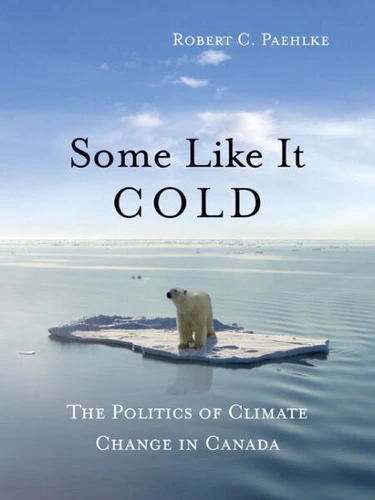Some Like It Cold. The Politics of Climate Change in Canada
Par :Formats :
Disponible dans votre compte client Decitre ou Furet du Nord dès validation de votre commande. Le format ePub est :
- Compatible avec une lecture sur My Vivlio (smartphone, tablette, ordinateur)
- Compatible avec une lecture sur liseuses Vivlio
- Pour les liseuses autres que Vivlio, vous devez utiliser le logiciel Adobe Digital Edition. Non compatible avec la lecture sur les liseuses Kindle, Remarkable et Sony
 , qui est-ce ?
, qui est-ce ?Notre partenaire de plateforme de lecture numérique où vous retrouverez l'ensemble de vos ebooks gratuitement
Pour en savoir plus sur nos ebooks, consultez notre aide en ligne ici
- Nombre de pages168
- FormatePub
- ISBN978-1-926662-36-7
- EAN9781926662367
- Date de parution30/04/2008
- Protection num.Digital Watermarking
- Taille410 Ko
- Infos supplémentairesepub
- ÉditeurBetween the Lines
Résumé
Some Like It Cold plunges headlong into the political conundrum of Canada's climatechange debate. Focusing on the past responses of both Liberal and Conservative governmentsto the looming crisis-ranging from negligence to complicity and connivance-Paehlke illuminatesthe issues surrounding compliance with global regulations such as Kyoto, includingthe dilemma of tar sands development. But he also lays out crucial political steps that could, if taken, lead towards a solution.
While he presents a potentially positive projection for the future, Paehlke is not afraid topoint a finger at Canada's fractured and flawed democracy-demonstrating that the country'sambivalence is our biggest hindrance to joining the international quest to move forward onthis unparalleled global challenge.
While he presents a potentially positive projection for the future, Paehlke is not afraid topoint a finger at Canada's fractured and flawed democracy-demonstrating that the country'sambivalence is our biggest hindrance to joining the international quest to move forward onthis unparalleled global challenge.
Some Like It Cold plunges headlong into the political conundrum of Canada's climatechange debate. Focusing on the past responses of both Liberal and Conservative governmentsto the looming crisis-ranging from negligence to complicity and connivance-Paehlke illuminatesthe issues surrounding compliance with global regulations such as Kyoto, includingthe dilemma of tar sands development. But he also lays out crucial political steps that could, if taken, lead towards a solution.
While he presents a potentially positive projection for the future, Paehlke is not afraid topoint a finger at Canada's fractured and flawed democracy-demonstrating that the country'sambivalence is our biggest hindrance to joining the international quest to move forward onthis unparalleled global challenge.
While he presents a potentially positive projection for the future, Paehlke is not afraid topoint a finger at Canada's fractured and flawed democracy-demonstrating that the country'sambivalence is our biggest hindrance to joining the international quest to move forward onthis unparalleled global challenge.



